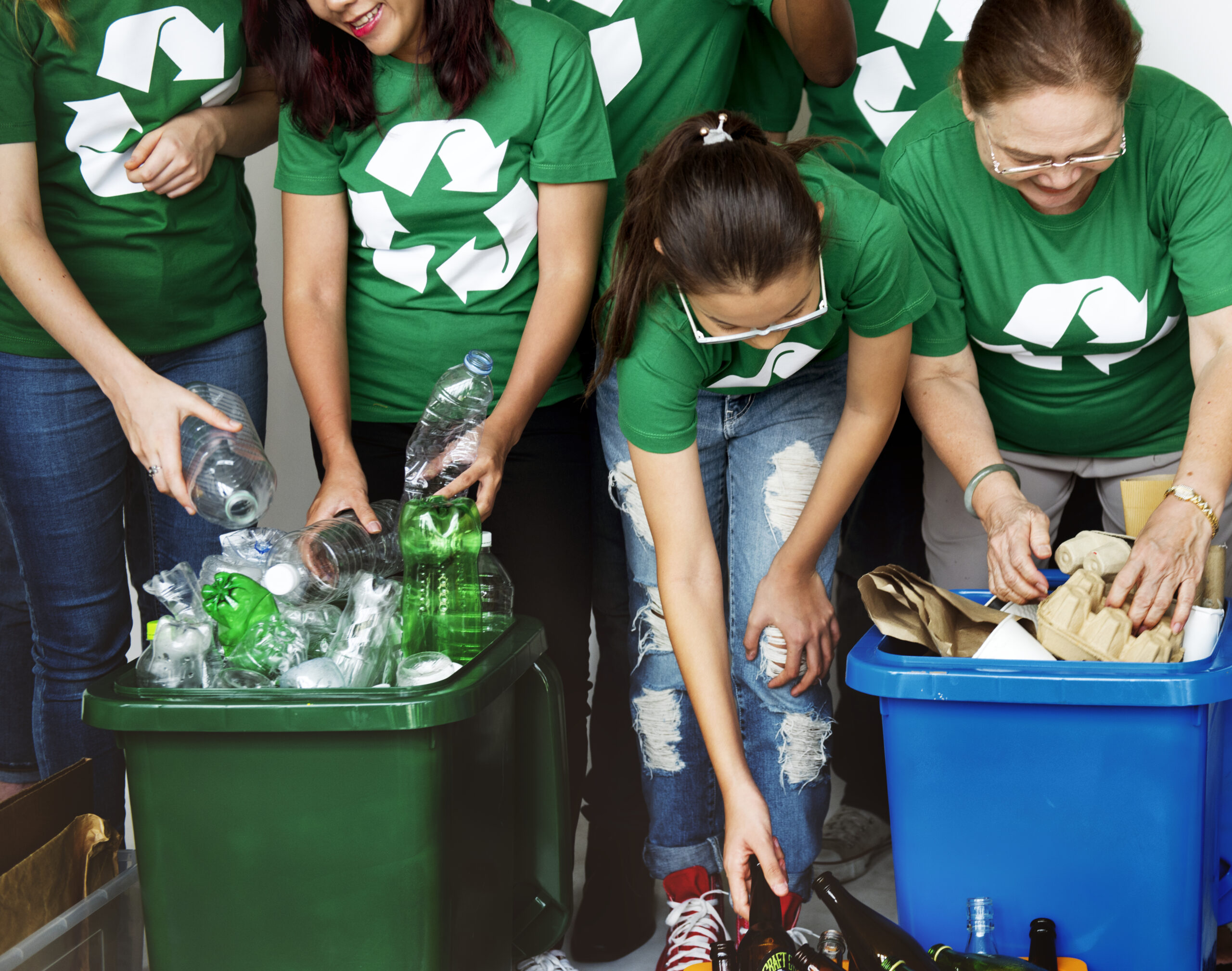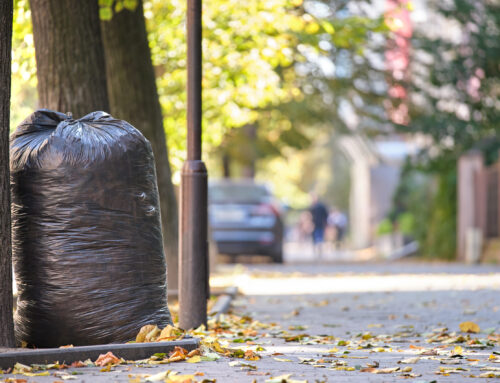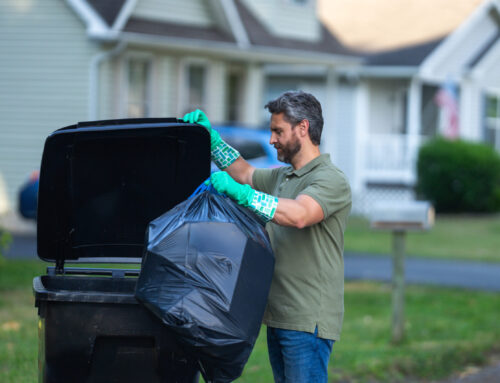
In a world that’s increasingly aware of the environmental impact of human activity, the role of garbage collection services has taken on new significance. While the immediate benefit of garbage collection is obvious—keeping streets and homes clean—its broader contribution to sustainable living is often overlooked. Effective waste management is a critical component of creating a sustainable future, and garbage collection services play a pivotal role in reducing waste, conserving resources, and mitigating the environmental effects of pollution.
The Importance of Waste Management in Sustainability
Sustainable living refers to practices that aim to reduce the negative impact on the planet by conserving resources and promoting responsible consumption. A major part of this effort is managing waste in ways that reduce landfill use, minimize pollution, and promote recycling and composting.
Garbage collection services are at the forefront of waste management. They ensure that waste is properly collected, sorted, and disposed of in environmentally responsible ways. Without reliable garbage collection, waste could pile up in urban and rural areas, leading to health risks, environmental degradation, and an increase in pollution. These services not only help keep communities clean and safe but also ensure that waste is managed in ways that align with the principles of sustainability.
Garbage Collection and Resource Conservation
One of the key components of sustainable living is resource conservation, which garbage collection services facilitate by supporting recycling programs. Recycling diverts waste from landfills and reduces the need for extracting raw materials from the earth. For example, recycling metals, paper, plastics, and glass allows these materials to be reused, conserving the energy and resources that would otherwise be spent producing new materials.
Garbage collection systems, especially in cities with curbside recycling programs, make it easy for residents to separate recyclables from non-recyclables. The materials collected are then processed and sent to recycling facilities where they are repurposed. Without this crucial step in the waste management cycle, valuable materials would simply end up in landfills, taking years—if not centuries—to decompose.
Reducing Landfill Use
Landfills are a significant source of methane, a potent greenhouse gas that contributes to climate change. Reducing the amount of waste sent to landfills is a key goal of sustainable waste management, and garbage collection services help achieve this by implementing programs that encourage recycling and composting.
When organic waste, such as food scraps and yard trimmings, is collected and composted instead of sent to landfills, it not only reduces methane emissions but also creates nutrient-rich soil that can be used in agriculture and landscaping. Composting services provided through municipal waste collection programs help divert this organic material from landfills, reducing the environmental footprint of waste disposal.
In addition to organic waste, electronic waste (or e-waste) is another category that should be carefully managed. Garbage collection services that offer e-waste recycling ensure that harmful materials, such as lead, mercury, and cadmium, are not released into the environment. This helps reduce toxic pollution and conserves valuable materials like copper and gold, which can be recovered and reused.
The Role of Education in Garbage Collection
Effective waste management and the success of sustainable garbage collection systems depend heavily on public awareness and participation. Educating communities about the importance of proper waste sorting, recycling, and reducing overall waste generation is crucial. Garbage collection services often take the lead in these educational efforts by working with local governments to run campaigns that teach residents how to separate their recyclables, compost food waste, and dispose of hazardous materials properly.
In many areas, garbage collection companies distribute informational flyers or use digital platforms to remind people of collection schedules, the types of materials that can be recycled, and how to prepare recyclables for pickup. These efforts ensure that residents are equipped with the knowledge they need to contribute to waste reduction efforts.
In addition, some garbage collection services offer incentives to encourage recycling and composting. For example, pay-as-you-throw programs charge residents based on the amount of non-recyclable trash they produce, which encourages people to reduce their waste output and recycle more. Such programs demonstrate how garbage collection services can promote sustainable practices by influencing consumer behavior.
Challenges Facing Garbage Collection in Sustainability
While garbage collection services are essential to sustainable living, they face several challenges. One major issue is contamination in recycling streams. When non-recyclable items, such as plastic bags or food-contaminated containers, are mixed with recyclables, entire loads can become unusable and end up in landfills. This problem highlights the need for continued education and clearer guidelines for residents.
Another challenge is the cost of maintaining and upgrading waste management infrastructure. Sustainable garbage collection often requires investment in specialized vehicles, sorting facilities, and composting sites. These costs can be a burden on local governments, especially in smaller or less affluent communities. Despite these financial hurdles, many municipalities are finding creative ways to fund sustainable waste management programs, such as partnerships with private companies or using government grants aimed at environmental protection.
Moreover, as consumer habits shift, the composition of waste is also changing. The rise in e-commerce, for example, has led to an increase in packaging waste, which presents new challenges for recycling programs. Garbage collection services must adapt to these changes by updating their systems to handle new types of waste efficiently.
Innovations in Garbage Collection for a Greener Future
Fortunately, technological advancements are helping garbage collection services become more efficient and environmentally friendly. Innovations like smart waste bins, which monitor the fill level of trash and recyclables, enable more efficient collection routes, reducing fuel consumption and greenhouse gas emissions. Additionally, waste-to-energy technologies, which convert non-recyclable waste into energy, are becoming more widespread, providing an alternative to traditional landfills.
In some cities, garbage trucks are being powered by renewable energy sources, such as electricity or biofuels, further reducing the carbon footprint of waste management. These innovations, coupled with increased public awareness and participation, are helping to make garbage collection a vital part of sustainable living.
Start Living Sustainably Today
Garbage collection services are far more than a convenience—they are essential to achieving sustainability goals. By facilitating recycling, reducing landfill use, conserving resources, and educating the public, garbage collection services contribute significantly to creating a cleaner, greener world. As technology advances and communities become more engaged in sustainable practices, the role of garbage collection in promoting environmental health and resource conservation will only continue to grow. In embracing the philosophy of “waste not, want not,” individuals and societies can take meaningful steps toward a more sustainable future. Take the first step today by calling AAA Sanitation & Garbage Removal!
AAA Sanitation & Garbage Removal
79 Business Dr Ste A
Hull, GA 30646
(706) 543-7788
https://aaasanitationco.com/






Leave A Comment